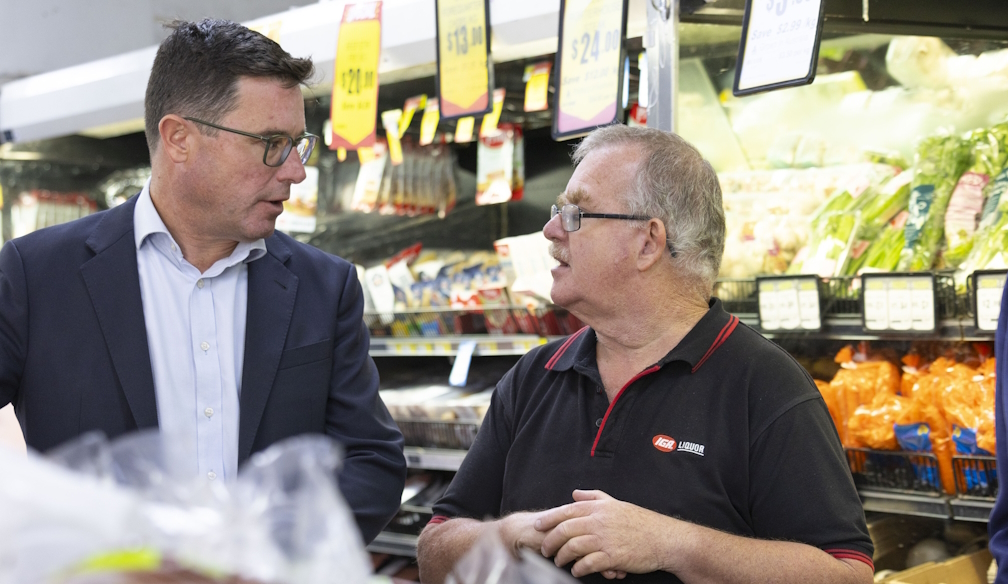Reform clock is ticking - the big policy challenges the next government must urgently address
- Written by Aruna Sathanapally, Grattan Institute

The 2025 federal election coincides with a period of profound global uncertainty, as the Trump administration wreaks havoc on the free trade[1] system and longstanding alliances[2].
The events of recent months have underscored how, at each election, the voters in a democracy set their country on a path. Here in Australia, voters will be choosing whom to trust with tackling our challenges and making the most of the opportunities before us.
These turbulent times internationally only reinforce the need for us to be clear-eyed about the challenges facing Australia, and where our strengths lie in addressing them.
The big five challenges
We see five overlapping domestic policy challenges[3] that must be tackled by whoever wins the next election, to ensure prosperity for current and future generations.
First, we must plan and deliver over the next 25 years the economic transformation that accompanies decarbonisation.
Addressing climate change[4] is not a task we can delay or abandon, but it will be neither easy nor cheap. The next government can either work to build a credible plan, to orient long-term investment in a renewable energy future[5], or leave a legacy for the next generation of even greater costs and unreliability, and missed opportunities.
Second, we must increase the availability and affordability of housing[7] in Australia. Housing is a fundamental human need, and when the housing system fails to deliver enough homes in the places people need and want to live, the consequences are both social and economic. In particular, our broken housing system sits at the centre of growing inequality in Australia.Third, as the structure of our economy changes, becoming less reliant on routine and manual labour, Australia must deepen its talent pools and boost productivity[8] to meet the needs of our society and lift economic dynamism. We must improve our school systems, expand access to high-quality early childhood education and care, dismantle barriers in the labour market that prevent people from making the most of their skills and experience, and be rapid adopters of the best global practices and technology.
Fourth, we are in the midst of the retirement of the Baby Boomer generation. An ageing population[9] is placing increasing demands on public services, government budgets and our workforce. We need to get better at tackling chronic disease in our health system, and we need to shore-up our retirement and aged-care systems for the demographic change that we have long known is coming.
Fifth, we cannot continue to have high expectations for public services and infrastructure, without raising the money to pay for them. Tax reform[10] has sat in the too-hard basket for too long. In particular, income tax breaks for superannuation and housing have become too generous, and unfairly place the tax burden on younger, less wealthy taxpayers.
And we need to implement sensible savings. Swingeing cuts may seem easy and appealing on the surface, but real savings will take more thinking than that: to make hospitals more efficient, to better target the NDIS, to get smarter in how we spend public money in procuring big infrastructure and defence projects.
A position of strength
None of these challenges is new: they were waiting for us as we emerged from the COVID crisis. Fortunately, we are not starting from scratch.
In several areas, the federal government has made a start. But whoever forms government after the 2025 election must stay the course on difficult reforms while also finally confronting the reforms that neither side of politics has effectively tackled since the start of the century.
Australia occupies a position of relative strength to tackle these challenges. We have a highly educated and skilled population, a more manageable fiscal position than many of our counterparts, stronger public institutions, and less polarisation in our politics.The reform clock is ticking
Why, then, has reform proved so hard in Australia? Perhaps we have taken our strengths for granted, perhaps we have been content to leave problems for our future selves to solve. We cannot continue in this way.
The fundamentals of Australia’s prosperity have been our success in opening our economy and society to the world, while maintaining a strong social safety net, and ensuring economic benefits are broadly shared and that each new generation sees opportunity to build a rewarding life. Failing to tackle the Big Five challenges above risks unpicking these foundations.
Vested interests have been successful in thwarting reforms in the public interest for decades in Australia. Or perhaps the politics of opposition have proved so successful as to kill the prospect for bipartisan agreement on necessary, evidence-backed change.
Equally, it falls to the media to hold politicians to account over the facts and evidence that support their claims. Politicians should be firmly tested on what they propose to do with the power they seek, and how they intend to advance the interests of all Australians. This is one of the most important safeguards against empty promises that will do nothing to make us better off, or even take us backwards.
The reform clock is ticking. The winner of the 2025 election will have to get to work, quickly, on building a better Australia.
References
- ^ free trade (eastasiaforum.org)
- ^ alliances (www.chathamhouse.org)
- ^ challenges (grattan.edu.au)
- ^ climate change (www.csiro.au)
- ^ renewable energy future (www.iea.org)
- ^ WA Department of Fire and Emergency Services/AAP (photos.aap.com.au)
- ^ housing (www.salvationarmy.org.au)
- ^ productivity (www.uts.edu.au)
- ^ ageing population (treasury.gov.au)
- ^ Tax reform (grattan.edu.au)
- ^ Mick Tsikas/AAP (photos.aap.com.au)
















